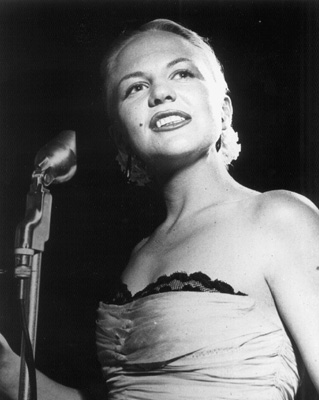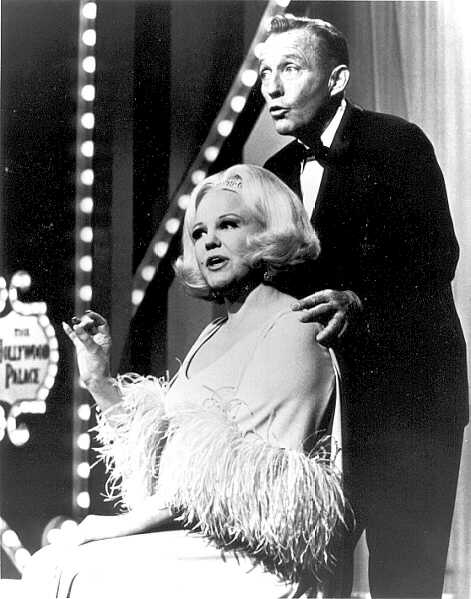
Before the advent of television in the 1950s, radio was America's greatest entertainment medium. Millions of listeners tuned in daily to hear soap operas and quiz shows. After dinner the entire family was entertained by a wide range of programs; comedies ("Fibber McGee and Molly"), westerns ("Gunsmoke"), and thrillers ("Lights Out") were all great favorites. Among the most popular were those with a variety format hosted by stars like Bob Hope, Jimmy Durante and Bing Crosby.

Recording stars like Peggy Lee and David Barbour were very much in demand for appearances on variety programs. They began to work in radio on a weekly basis as early as 1946. They appeared on shows hosted by Bob Crosby (Bing's brother headed up his own popular band "Bob Crosby and His Bobcat's") and their fellow Capitol Records mate Dinah Shore. Along with Woody Herman, Peggy and Dave acted as hosts of "The Electric Hour." Later, Peggy would be a hostess on her own show, "The Chesterfield Supper Club."
During this time, Peggy was hired by Bing Crosby to be his "girl singer." She was a regular with Bing, making appearances on his show every other week for the next few years. One would have thought with all her years of radio work, not to mention her time with Benny Goodman, that Peggy would have been at ease with the studio audiences. It spite of her success, the twenty-seven year-old singer was still painfully shy and insecure. Bing was aware of her stage fright.
In an interview taped on October 3, 1991, Peggy discussed Bing's great sensitivity:
He saw me standing outside the door at NBC, too frightened to go out. He said, "Can I do anything for you, Peg?" I said, "I donít think so." He said, "Would you like a drink?" I said, "No, don't drink." Bing said, "What is it, are you afraid?" I said, "Yes!" By now it was air-time and I said, "Please, when you introduce me would you stay on the stage? Stay where I can see your feet, and then I think I'll be alright." And that's what he did.
Peggy went on to tell the interviewer that she didn't feel that many stars would be willing to do that. She also loved his sense of humor. She'd arrive before the show and play the piano; Crosby would enter and ask "Who are you today, Chopin or Stravinsky?" She also remembered Bing's great concern during David's illness:
He did so many things when David was ill. When David was in the hospital he was seriously ill. In fact, nine times they gave him up. Bing was very attentive about everything. He called every morning to see how he was. He offered me blood, he offered money, offered his car, offered to be a nurse-maid for my daughter, Nicki. He was a total friend.
Peggy would never forget Bing's kindness. His admiration for her talent was obvious. On one memorable broadcast he introduced her saying, "When Peggy sings the blues, youíre gonna hear the truth." No small praise from a singer of Crosby's caliber. Bing recognized an important part of Peggy's magic. Whatever emotion the lyrics called for she conveyed them with pure honesty. Their friendship remained strong through the years. They sang duets on records, in one film and on television.